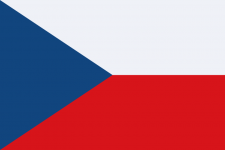
A recently published article in Health Expectations - an international open-access journal on public participation in health care and policy - identifies and explains communication barriers in the provision of healthcare to refugees displaced from Ukraine in the Czech Republic.
According to healthcare professionals and intercultural mediators who were consulted for the article, the main barriers to communication in this context are (1) language barriers and interpreting, (2) cultural barriers, (3) differing expectations of health and the healthcare systems in the Czech Republic and Ukraine, (4) prejudices and negative attitudes and unethical behaviour towards refugees and migrants, and (5) lack of awareness of patient rights.
Elsewhere, with a view to overcoming these communication barriers, experts from the Agency for Migration and Adaptation (AMIGA) and the First Faculty of Medicine of Charles University recently published a set of 10 guidelines for healthcare professionals. The guidelines, which promote collaboration between all relevant actors, provide practical advice on enhancing the cultural understanding of professionals and improving refugees' understanding of and trust in the Czech healthcare system.
These guidelines advise doctors to use professional interpreters rather than family members, to respect patients' preferences regarding the gender of interpreters, and to prioritise direct communication with patients in the presence of an interpreter. The guidelines also recommend that healthcare facilities consider implementing online appointment booking systems in multiple languages, thereby significantly improving service accessibility for individuals with different native languages.
Details
- Publication dates
- Geographic area
- Czech Republic
- Source
- Posted by
